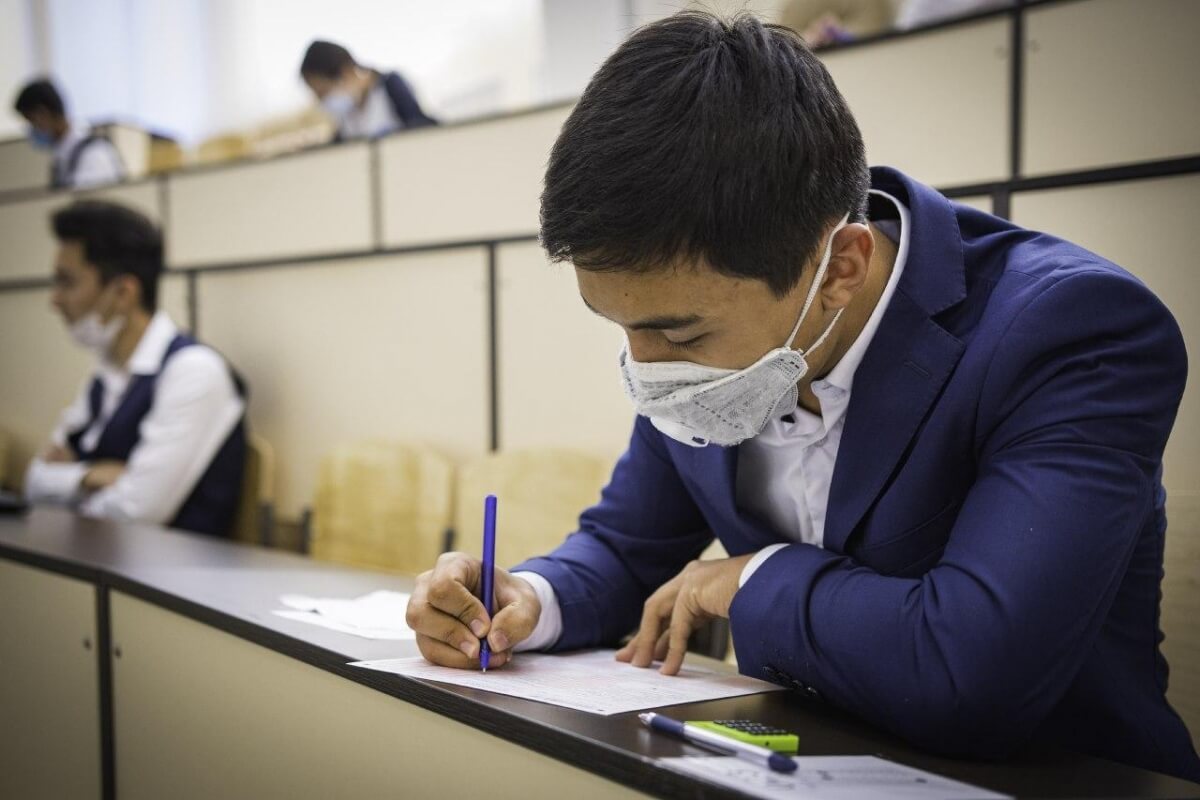NUR-SULTAN – Kazakhstan recently introduced a new set of amendments to the educational system as the Kazakh students resume academic year. While the Kazakh students will continue their studies with distance learning, the new amendments allowed for educational institutions to organize a combined semester or academic quarter.

Photo credit: gov.kz.
The updated law established a new working definition of distance learning as a concept and “the competence of an authorized body for the approval of the rules to organize distance learning, where the requirements and procedures for its implementation will be determined,” said Kazakh Minister of Education and Science Askhat Aimagambetov in a facebook post.
The amendments allow for university students to get back to traditional classrooms for applied classes in laboratories and seminars. Universities will be equipped with non-contact thermometers, sanitizers, and disinfectant tunnels.
The school children of the graduating class will have 70 percent of their classes in classrooms with no more than 15 people. In 2021, Kazakhstan will have more than 440,000 graduating class students.
The schoolchildren can also study and live in boarding schools, attend individual classes of no more than five people. In addition to that, schools with up to 300 students in total can invite children to classrooms of up to 15 people.
On Jan. 12, 41.7 percent of Kazakh schoolchildren began studying in traditional classrooms, said Kazakh Vice Minister of Education and Science Sholpan Karinova.
Similar to high school students, the students at vocational schools will also have 70 percent of their work in a classroom with few exceptions. There are 97 vocational schools in rural areas and small towns, which will have all their classes in traditional classrooms. This exception will also apply for 14 colleges under the Kazakh Defense Ministry and the Ministry of Internal Affairs.
However, there will only be distance learning for the second to fourth year vocational school students in IT, pedagogical, economic, social, humanitarian studies. The local chief sanitary doctors will be the last body to decide the format of an educational process.
The amendments also introduced new norms on additional education, textbook quality, safety, and returned state certification for kindergartens, schools, and colleges for the next five years. In addition to that, any new curricula will undergo approbation to address any shortcomings.

